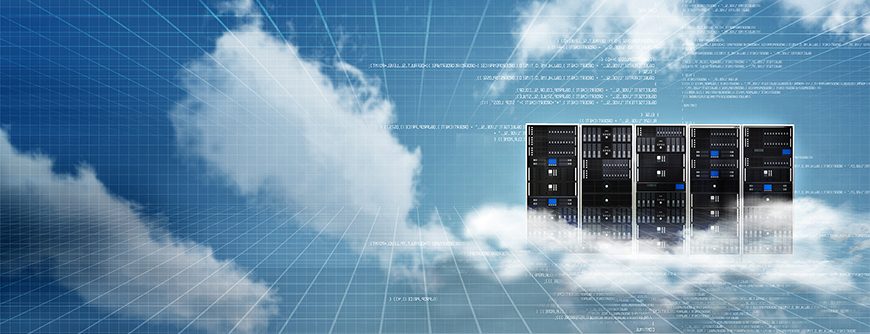O que é uma nuvem bare-metal?
Uma nuvem bare-metal é um serviço de computação em nuvem que dá aos usuários acesso a servidores dedicados e físicos que são gerenciados e mantidos por um provedor de serviços gerenciados (MSP, Managed Service Provider).
O que significa bare-metal?
Bare-metal refere-se a um computador que vem sem sistema operacional (OS ou aplicativos instalados e que inclui apenas componentes essenciais de hardware, como placas-mãe, CPUs, discos rígidos e placas de rede.
Em um computador bare-metal, o OS é instalado diretamente no disco rígido físico e os aplicativos são executados de forma nativa. As soluções bare-metal são de locatário único e não virtualizadas, permitindo isolar recursos e acessar toda a capacidade de processamento do hardware físico para obter o máximo desempenho.
O que é uma nuvem bare-metal?
A nuvem bare-metal é um serviço em que os fornecedores alugam recursos de hardware físico dedicados aos clientes por meio da nuvem pública. Os clientes têm controle total sobre um ou mais servidores físicos no ambiente de hospedagem em nuvem. Ao contrário dos serviços de nuvem tradicionais, que usam servidores virtualizados e com vários locatários, as soluções de nuvem bare-metal são de locatário único (ou seja, os recursos de hardware não são compartilhados com outros locatários).
Com um serviço de nuvem bare-metal, você obtém o controle e a previsibilidade do hardware físico dedicado com a escalabilidade e o desempenho de uma plataforma de computação em nuvem. Como não há sobrecargas associadas à execução de um hipervisor, uma solução bare-metal pode fornecer desempenho mais alto e latência mais baixa do que uma máquina virtual.
Por esses motivos, as soluções de nuvem bare-metal são ideais para cargas de trabalho de alto desempenho, como processamento de Big Data, treinamento de AI artificial e aprendizado de ML e aplicativos essenciais.
Como funciona uma nuvem bare-metal
Uma solução de nuvem bare-metal permite alugar servidores dedicados e bare-bones de um provedor de serviços de bare-metal gerenciado. Assim como um servidor dedicado tradicional, você tem acesso direto ao hardware e ao sistema operacional do sistema. Os aplicativos são instalados e executados diretamente no hardware físico.
Embora não haja máquinas virtuais ou hipervisores instalados, como em um ambiente de computação em nuvem tradicional, alguma forma de software de virtualização é usada para gerenciar, orquestrar e provisionar os servidores físicos.
Com uma nuvem bare-metal, o provedor gerencia o datacenter com o hardware físico, incluindo servidores, componentes de rede, armazenamento e outros serviços essenciais, como segurança local. Suas responsabilidades como cliente incluem o gerenciamento, a configuração e o licenciamento dos sistemas operacionais, aplicativos e bancos de dados na instância bare-metal.
Nuvem bare-metal vs. servidor dedicado: Comparação
A nuvem bare-metal e os servidores dedicados fornecem recursos de hardware dedicados usando um modelo de locatário único.
Com servidores dedicados, o cliente gerencia e mantém o servidor, incluindo instalações e atualizações de software, configuração de segurança e backups. Soluções de nuvem bare-metal, por outro lado, oferecem serviços por meio da nuvem. O provedor de nuvem gerencia e mantém o hardware e configura o software e os aplicativos executados no hardware. Os clientes têm acesso exclusivo aos recursos de hardware que podem acessar no local ou por meio de API, CLI e ferramentas de infraestrutura como código (IaC, Infrastructure-as-code).
Nuvem bare-metal x IaaS: Comparação
A infraestrutura como serviço (IaaS, Infrastructure as a Service) é um modelo de serviço em nuvem que disponibiliza recursos como computação, armazenamento e rede aos clientes sob demanda pela Internet por meio de um provedor de IaaS terceirizado. Os clientes não têm conhecimento ou controle da infraestrutura física subjacente na qual os serviços são desenvolvidos.
A nuvem bare-metal é um subconjunto do modelo de computação em nuvem de IaaS que fornece acesso a servidores dedicados sem OS ou hipervisores instalados. Com nuvens bare-metal, você tem controle total da infraestrutura física subjacente aos aplicativos do cliente, permitindo otimizar a utilização de recursos e o desempenho no nível do hardware.
Tipos de serviços de nuvem bare-metal
Há vários tipos de serviços de nuvem bare-metal disponíveis, incluindo:
Servidores bare-metal: São servidores físicos sem virtualização, um único sistema operacional e aplicativos instalados nativamente que são alugados aos clientes com base no pagamento por uso. Os clientes têm acesso físico e controle total do hardware e podem instalar e configurar seus próprios sistemas operacionais e aplicativos.
Instâncias bare-metal: São servidores físicos bare-metal pré-configurados disponíveis sob demanda na nuvem. Assim como os servidores bare-metal, as instâncias bare-metal não são virtualizadas e usam um único sistema operacional. No entanto, as instâncias são hospedadas na nuvem e os recursos são acessados, configurados e gerenciados por meio da API ou do console baseado na Web do provedor de nuvem.
Bare-metal como serviço (BMaaS): Esse é um serviço gerenciado por meio do qual o provedor de nuvem é totalmente responsável por toda a manutenção e suporte de hardware. Os clientes têm acesso a soluções de servidor bare-metal com pagamento conforme o uso, evitando os custos iniciais e a manutenção contínua associada à compra e ao gerenciamento de seus próprios servidores físicos.
- Bare-metal híbrido: Essa oferta combina servidores bare-metal com outros serviços de nuvem em uma solução de nuvem híbrida. As soluções híbridas bare-metal combinam a flexibilidade das máquinas virtuais (VMs, Virtual Machines) com o alto desempenho e controle dos servidores físicos bare-metal para criar soluções de servidor físico dedicadas que são facilmente configuradas e gerenciadas usando uma camada de virtualização.
Benefícios de uma nuvem bare-metal
As soluções de nuvem bare-metal oferecem vários benefícios para as organizações. Aqui estão algumas delas:
Custos
Com serviços de nuvem bare-metal, não há ativos físicos para manter ou substituir. Além disso, com um modelo de pagamento pago por uso, você pode comprar o que precisar, quando precisar, e evitar comprar em excesso infraestrutura, hardware e capacidade de armazenamento.
Recursos dedicados
Em um ambiente de nuvem pública, as máquinas virtuais compartilham os recursos entre vários usuários e aplicativos, o que pode levar a problemas de desempenho. Com nuvens bare-metal, os recursos dedicados eliminam a contenção de recursos, e os clientes têm controle total e acesso irrestrito ao nível de hardware aos componentes físicos da máquina para otimização máxima da carga de trabalho.
Segurança
Um servidor bare-metal dedicado também garante maior segurança, o que é especialmente importante para organizações onde a conformidade e a segurança são primordiais. Como os recursos são isolados e os clientes têm controle total do sistema, as nuvens bare-metal eliminam o risco de que os dados confidenciais possam ser expostos a outros usuários.
Escalabilidade
Por serem desenvolvidos no modelo de nuvem, os serviços bare-metal são altamente escaláveis. Por meio da interface de gerenciamento do provedor, você pode provisionar ou desativar recursos de servidor de maneira rápida e fácil para atender a qualquer nova demanda de negócios.
Desvantagens de uma nuvem bare-metal
Embora as nuvens bare-metal tenham muitas vantagens, há algumas desvantagens.
O potencial para custos adicionais
Embora um modelo de pagamento conforme o uso ajude você a alocar melhor seus recursos financeiros, as soluções bare-metal normalmente são mais caras do que outros tipos de soluções de nuvem. Se você não tiver requisitos específicos de hardware ou de alto desempenho, pode ser aconselhável considerar uma solução alternativa.
Personalização limitada
Os ambientes de nuvem bare-metal normalmente vêm com configurações predefinidas de CPU, RAM e armazenamento. Isso pode limitar a capacidade da sua organização de personalizar o hardware e o sistema operacional para atender a requisitos comerciais exclusivos.
Maior gerenciamento geral
Se você estiver migrando de um serviço de nuvem pública para uma solução de nuvem bare-metal, a sobrecarga de gerenciamento aumentará, pois agora você é responsável por configurar hardware e instalar e gerenciar o OS o hipervisor, os contêineres e todos os outros softwares.
Quando usar uma nuvem bare-metal
As nuvens bare-metal podem ser uma excelente solução, mas podem não ser adequadas para todos os casos de uso. Aqui estão quatro cenários de uso para soluções de nuvem bare-metal:
Servidores de jogos: Uma solução de nuvem bare-metal oferece recursos de hardware dedicados que eliminam os problemas de latência e escalabilidade que frustram os jogadores, garantindo o máximo desempenho e uma experiência otimizada para o jogador.
Desenvolvimento de aplicativos: As soluções de nuvem bare-metal permitem que as equipes de DevOps criem, testem e implantem aplicativos com mais rapidez e facilidade. O acesso à raiz do servidor permite o uso de arquitetura nativa da nuvem e uma ampla gama de software de conteinerização e orquestração para tratar a infraestrutura como código.
AI e aprendizado de máquina: Com nuvens bare-metal, os algoritmos AI artificial, ML e PLN podem aproveitar o acesso de nível raiz aos recursos de servidor de ajuste fino para desempenho ideal ao treinar modelos de aprendizado de máquina.
- Big Data: As soluções de nuvem bare-metal são ideais para processamento de Big Data porque não há sobrecarga desnecessária de virtualização. O sistema pode dedicar todos os recursos para executar aplicativos de análise e extrair insights valiosos.
Obtenha o Bare Metal as-a-Service (BMaaS), com suporte da Pure
O Bare Metal as-a-Service (BMaaS) da Pure oferece todos os benefícios de um servidor dedicado tradicional, incluindo controle exclusivo, recursos dedicados, alto desempenho e segurança, além dos benefícios de provisionamento sob demanda da nuvem.
Ofereça suporte a ecossistemas híbridos/multinuvem, ambientes orientados por dados e aplicativos legados, tudo em uma única plataforma segura e fácil de usar. Pague pelo que usar, quando usá-lo.
Obtenha a promessa da nuvem no bare-metal com o BMaaS, com suporte da Pure.


